Drug & Alcohol Rehab in Slough
With 270,705 adults struggling with substance abuse, and only 132,124 seeking treatment, addiction to drugs and alcohol is a common health issue across the UK. If you are struggling with an addiction to these substances, it’s important that you recover from it.
OK Rehab can find a drug and alcohol rehab in Slough that can offer you treatment to help you free yourself from your addiction. Being reliant on drugs or alcohol can have serious consequences on your health, your mental well-being, and your relationships.
It’s useful to understand what you can do at home to support the family when one of you has an addiction.
Supporting a loved one can be difficult because of how the illness changes a person’s thoughts and behaviours. Learning how to respond to this in a healthy way can make a huge difference within the home.
One of the most effective interventions people use is the CRAFT method. It helps family members to understand addiction better, how to communicate, and how to find a place of self-care while living with the person who is addicted.
The goal of this approach is to encourage your loved one towards entering an alcohol rehab in Slough through using positive reinforcement.
Another intervention you might try is where you’re assisted by a professional to talk to your loved one about their addiction.
You outline the things that are causing a strain on the household and your concerns about their health. After this, the professional will outline rehabilitation options.
To begin your recovery journey today, call our 24-Hour Helpline: 0800 326 5559
The financial side of a rehab stay…

Of course, private residential treatment for addiction has a cost. This is because the building, resources, and staff need to be supplemented.
There are many clinics throughout the UK that cost varying amounts according to the type of luxury they offer.
You can expect to pay anywhere between £4,000 and £28,000 a month for a stay at rehab. To find out what rehab clinics in and near Slough are in your budget range and offer the service most suitable, you can have a chat with the OK Rehab team.
If you have health insurance, it might cover rehab treatment…

Many people use their health insurance to pay for their rehab stays. This is a useful option to know about and explore if you have a health insurance policy.
What you need to keep in mind if your policy does cover addiction treatment is that a claim will increase your yearly premiums.
For people who have a policy through their employers, it’s likely that there’s a caveat meaning you’re obligated to inform the company that you’re claiming on the insurance policy.
It might also stipulate that you need to explain what you’re claiming.
You might be eligible for NHS funding at a private clinic…
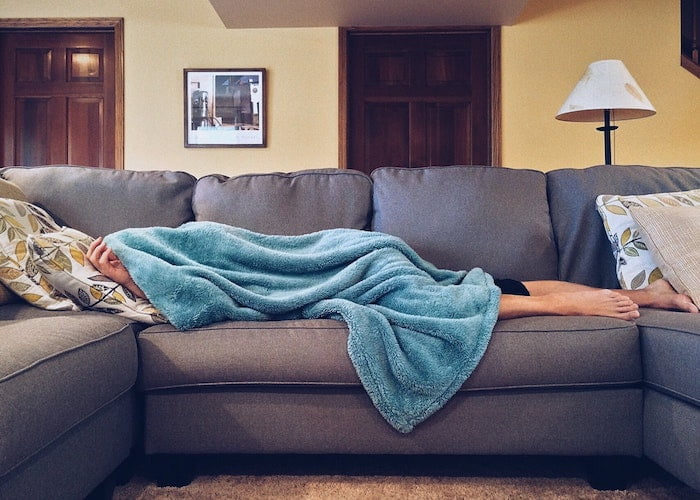
In some instances, people access a private rehab clinic through NHS funding. This is an option for people who are on low incomes or on benefits.
There are, however, criteria you need to meet to be considered for the funding.
You must be fully committed to quitting substances and be able to show this through your regular engagement with local alcohol and drug services.
It goes without saying, too, that your addiction will be viewed as moderate to severe by professionals.
The local council decide who is awarded funding for residential treatment. That’s who you apply to. It’s worth being in contact with a professional so that they can support your application.
To begin your recovery journey today, call our 24-Hour Helpline: 0800 326 5559
How much time do people stay at rehab for?

You might have heard that some people go to rehab for a week before returning home. It’s likely they will have entered the clinic to be supported through a detox.
This is critical in some cases where people have developed a physical dependency (i.e. on alcohol, benzodiazepines, or heroin).
While a detox lasts between seven to ten days, more input is required. A detox mainly deals with physical withdrawal and safely weaning a person off a substance.
Actually, to adapt psychologically and learn the skills needed to build a lifestyle of recovery, you need to spend longer at an alcohol rehab in Slough.
A twenty-eight-day stay is recommended for the majority of residents. Some people will stay longer.
Private clinical treatment and NHS services

In the UK, you can access either private or NHS treatment for support around addiction and recovery.
Private clinics are designed to get people sober. The staff are experts in their fields having trained to the highest levels. Residents stay overnight for a period of time to benefit from a substance-free environment.
There are psychotherapies, alternative therapies, and individual and group sessions. You get a tailored plan of treatment.
NHS clinics are in place to support people in the Slough area who have substance misuse issues, whether mild or severe and wherever the person is in their readiness to change.
There are weekly support groups and there is usually some input from a drug and alcohol worker.
A little about outpatient and inpatient approaches

When you stay overnight to receive the treatment you’re classed as an inpatient. Private clinics offer inpatient facilities. They tend to be more intensive and give you a safer environment to remain free from temptations and triggers.
When you live at home but go to a clinic for a group session, to take a medication, or for a counselling session, you’re considered an outpatient.
This is how NHS services run and what some private clinics offer to ex-residents as part of their aftercare programme if viable and appropriate.
To begin your recovery journey today, call our 24-Hour Helpline: 0800 326 5559
Alcohol detox and rehab in Slough
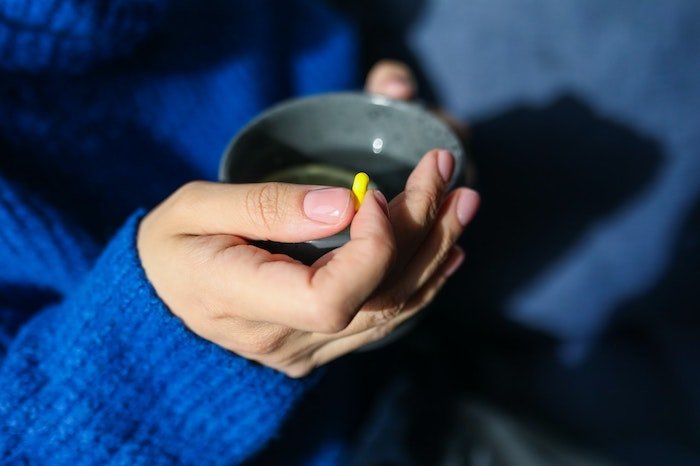
It can take an especially long time to realise and accept you have an alcohol problem and this can largely be to do with how society makes it easy to mask.
Having alcohol out at a meal, at the pub after work, and at home to unwind, normalises drinking. With so many people indulging it can become easier to hide.
Your family members or close friends are the first people who probably mentioned your drinking habits to you. This is one of the earliest signs that a problem is developing.
A doctor at an alcohol rehab in Slough will prescribe Librium, a medication to manage the symptoms and support you off alcohol in a smooth way.
This process lasts up to ten days. After this, you’ll begin the various treatments to tackle the mental aspect of alcoholism.
One of the therapies used is dialectical behavioural therapy. It’s brilliant at giving people the space and guidance to understand their emotions and how to handle them.
This can be critical in the case where a person has been using alcohol to numb feelings.
Rehab for cocaine in Slough
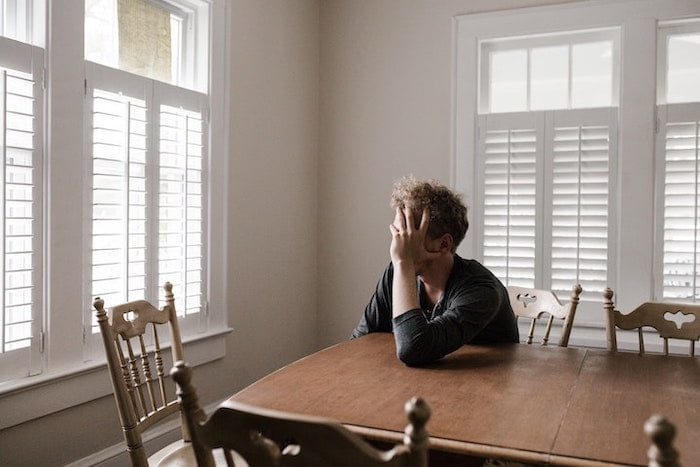
If you’re using cocaine regularly then it’s moved from recreational to problematic use. It’s a substance that surprises people because of how it tends to “sneak” in.
Many experiments with friends in a social environment and before they know it, the substance has become a monthly, weekly, or daily occurrence.
Cocaine causes a psychological addiction meaning that when you withdraw you can experience anxiety, repetitive thoughts and cravings, low mood, and of course there are physiological effects such as sleep disruption and heart palpitations.
At rehab, you’ll be assessed so the staff understand how severe your addiction is, what other factors might be relevant (i.e. a history of trauma or low self-esteem) and then formulate a treatment plan based on this.
Your programme will include regular counselling sessions. These are essential in developing self-understanding and being able to reflect on past behaviours, what you feel in the present, and where you want to head going forwards.
As well as this, you’ll enjoy various holistic therapies such as music and art therapy which are excellent spaces to process emotions through alternative means.
Rehab for heroin in Slough

To recover from a heroin addiction, you need professional support. This is the same as with any substance that people become hooked on, but with heroin there are withdrawal symptoms that need to be monitored and medicated.
These include:
- Pain in the bones.
- Sickness and diarrhoea.
- Muscular pain.
It’s important for you to have a doctor who will see you through the detox with a Subutex prescription. At rehab, this process lasts up to ten days and you’ll be kept comfortable as possible until you’re completely substance-free.
After this, you will begin to concentrate on treatments such as motivational interviewing. This is used to provide you the space to make sense of how you truly feel about becoming sober. It will also be where you discover deep motivation for change.
Rehab for cannabis in Slough

There are many people who use cannabis and this can make it more difficult to stop. This is especially the case if your friends and family are smokers.
It’s usual for people to encourage each other and it can be hard to be the person to hold their hands up and say, “I have an addiction and need to stop. I’d appreciate your support with this.”
Interestingly, at rehab, you learn new skills on how to manage social interactions as well as how to navigate your own internal responses.
Cannabis use can lead to anxiety, low mood, impaired memory, and even psychosis. Experiencing any of these can be frustrating and even scary. Professional input is critical.
One of the main treatments used to support your addiction as well as your mental health is cognitive behavioural therapy.
This is where you’ll learn to identify your thoughts, where they stem from, and how to change them. Developing this knowledge is key to your long-term success in recovery.
To begin your recovery journey today, call our 24-Hour Helpline: 0800 326 5559
What you need to know if you have a dual diagnosis…

A dual diagnosis is when you have an addiction that co-occurs with another illness, usually a mental health condition.
Some people will already know they have two conditions on entering an alcohol rehab in Slough, others will receive a diagnosis while at rehab. It could be that you’re described as having a cannabis addiction and anxiety, for instance.
Substance use can cause mental health conditions because of the psychoactive impact of the brain.
On the other hand, mental health conditions can lead to alcohol and drug use because people try to manage their moods and emotions through substances.
Rehab clinics offer treatments that support your mental health recovery as well as addiction. While the main aim is to support you to heal your addiction, it will be done in light of your mental health condition as well.
What is a relapse prevention plan?

A relapse prevention plan is created between you and a member of staff at rehab. The goal is to identify what activities and actions you can take to support you to maintain a sober lifestyle, as well as give you a guidance tool during difficult moments.
The plan will include steps to take to support mental well-being such as joining a gym or an art class. Coping techniques and new skills you’ve learned to manage cravings will be outlined.
As well as this you’ll have instructions on what to do to safely manage a relapse. It’s important you follow these and return to sobriety as quickly as possible as this makes it easier to maintain.
What other places are there in Slough to go to for support?

Aside from rehab clinics, it’s useful to know what other organisations are around to provide you with understanding, care, and a bit of support.
- 12 Step groups such as Alcoholics Anonymous and Narcotics Anonymous. These offer people throughout the world a safe space to go where others understand what addiction feels like. People are at all stages of the journey, some newly admitting to the addiction, while others have been in active recovery for many years. Social connection and drawing strength from a place of faith is where people build recovery from.
- Drug and alcohol services are available through the NHS. There you get a caseworker who will provide some conversation-based support and access to group sessions.
- SMART groups are available online and in-person in some places. This is a great way to make social connections and to learn how to approach recovery in a way that breaks things down so that the journey doesn’t feel so intimidating.
- Some people can access a home detox if they’ve been assessed by a professional and approved for it. You must be considered “low risk” in terms of managing medications, although you will be in regular contact with a doctor.
- Family members who could do with some support are able to contact Al-Anon and Nar-Anon. This is especially important where your relationships might be strained and ideas and guidance would benefit the household.
To begin your recovery journey today, call our 24-Hour Helpline: 0800 326 5559
Addiction and Your Health
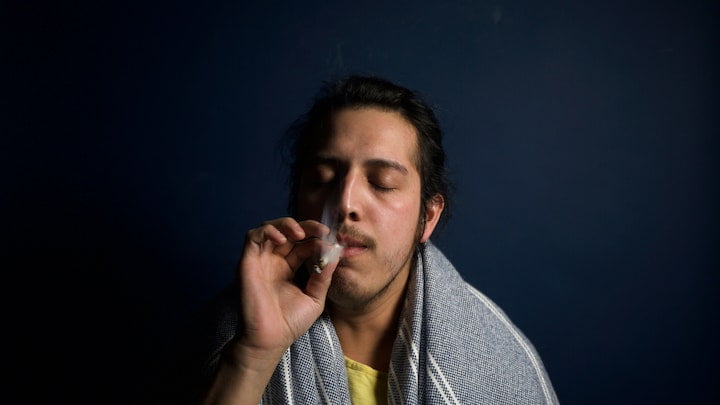
Long-term heavy drinking and drug intake can be dangerous for your health, as medical professionals consider alcohol to be a kind of poison.
Plus, repeated intake of drugs will lead to the chemicals in your brain being altered to the point that you compulsively take them.
When you are heavily reliant on drugs or alcohol, your health suffers.
Some of the most common health issues linked to substance abuse include:
- Strokes and heart attacks
- Lung disease
- Lung cancer
- Throat cancer
Drug abuse also brings the potential of overdose and death. 358,000 hospital admissions have been linked to heavy drinking in recent years, while there were 16,994 patients treated for drug poisoning.
These health issues that are related to drug and alcohol addiction can be long-term and life-threatening, so it’s important that you get help with your recovery to prevent further damage.
Addiction and Your Mental Wellbeing
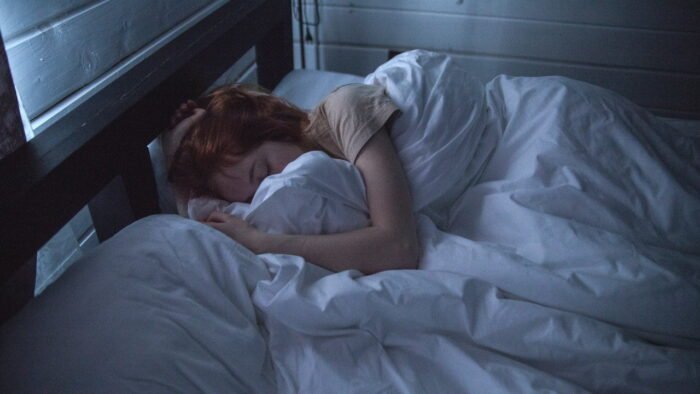
Your mental health is just as important as your physical health. Unfortunately, substance abuse can harm your mental well-being, too. If you struggle with stress, anxiety, depression, or other mental disorders, an addiction to drugs or alcohol can worsen these.
However, mental disorders can also be a reason for becoming reliant on substances.
For example, if you feel stressed or anxious and decide to have a drink or take a drug to get away from these feelings, the substances are actually heightening your stress and anxiety.
This can be a vicious cycle, and perhaps you feel as though you are trapped. However, OK Rehab can help you free yourself from this loop by finding treatment at drug and alcohol rehab in Slough for your recovery.
Having an addiction also makes it challenging to maintain a daily routine, which can threaten your performance and attendance at work. This adds to your stress and can even lead to you losing your job and finding yourself unemployed.
Due to this, you may be struggling with financial difficulties, which will only add to the burden of your stress, anxiety, or depression. This can be particularly difficult if you have children, pets, or another dependent relying on you to care for them.
Addiction and Your Relationships

Substance abuse can be a personal battle, but it’s not just you that’s affected by it. Your addiction can damage your relationships, thereby hurting your friends and family.
Being reliant on drugs and alcohol can lead to a reluctance to socialise with your friends and family. As well as this, you may have found yourself lying to your loved ones about your substance intake.
This secretive and dishonest behaviour can damage these relationships, which can lead to a feeling of loneliness. When people feel lonely over an extended period of time, there is an increased risk of suicide.
It’s also possible that you have experienced mood swings and an increased temper due to your addiction, and this makes it more likely for you to suddenly lash out and argue with your friends and family. This will cause further strain on these relationships.
It can seem daunting and even impossible to try to fix broken relationships but, by going to drug and alcohol rehab in Slough, you’ll be taking the first step to repairing this damage. By doing this, you’ll be able to enjoy a happy and fulfilling life.
To begin your recovery journey today, call our 24-Hour Helpline: 0800 326 5559
What Does Drug and Alcohol Rehab in Slough Involve?

After our team at OK Rehab has talked to you about your addiction, we’ll point you towards a tailored treatment plan at a drug and alcohol rehab in Slough that’s been designed specifically for your individual needs.
This plan will consist of a detox programme, followed by rehabilitation. After your time at rehab, your recovery will continue with aftercare.
The amount of time you spend in rehab will depend on your addiction, and this will be discussed with you when you contact OK Rehab.
1. Detox
Guided by a medical professional, you will clean your body and clear your mind from the effects of alcohol or drugs. You’ll do this by immediately stopping your intake of these substances.
However, the sudden withdrawal of these substances can cause withdrawal symptoms.
These symptoms can vary in how severe you feel them. They will depend on the substance your body has relied on, how long you have been addicted, and how much you consume in a day.
The most common symptoms include:
- Changes in appetite
- Mood swings
- Fatigue
- Irritability
- Nausea
- Muscle pain
- Restlessness
- Runny nose
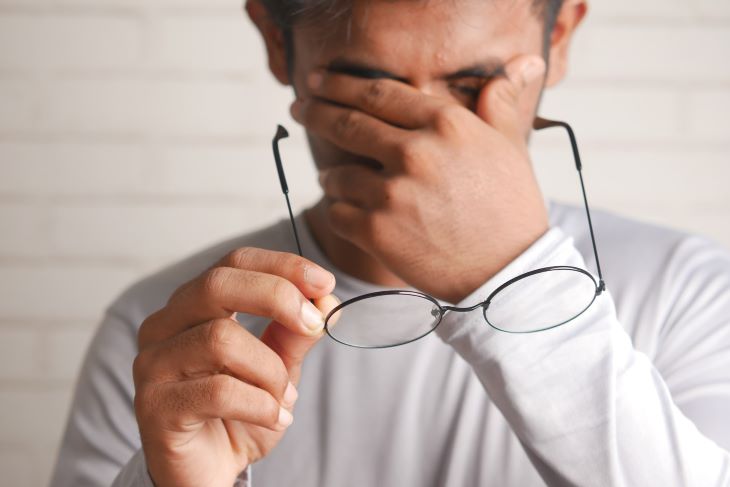
The more severe symptoms include:
- Sweating
- Tremors
- Vomiting
- Hallucinations
- Seizures
- Delirium
You won’t be able to predict which symptoms you will experience, or how severe they will be, but you will be assisted by a medical professional throughout.
They will monitor your progress and prescribe you appropriate pain relief if necessary. Your medical professional will ensure that your detox is as painless and successful as possible.
2. Rehabilitation
After you have completed the detox stage, you will continue your recovery with therapeutic treatments.
With a therapist, you will talk about your addiction and the challenges in your life that led to a dependency on drugs or alcohol.
The therapies you are treated with will depend on your individual needs, and this will be discussed between you and your therapist to find the most beneficial treatments for you.
However, the most common therapeutic treatments include:
- Individual Therapy
- Group Therapy
- Contingency Management
- Cognitive Behavioural Therapy (CBT)
- Dialectical Behavioural Therapy (DBT)
- Motivational Enhancement Therapy (MET)
Opening up about your thoughts and feelings, and the challenges you have faced, can seem daunting – especially if this will be the first time you’ve worked with a therapist. However, your therapist will be respectful, empathetic, and understanding.
Your therapist will help you understand why you felt the need to have a drink or take a drug: whether it was from grief, emotional trauma, life-changing injuries, or a mental disorder.
You’ll understand more about your behaviour, and how the decisions you make can affect your daily life.
Through the therapeutic treatments at drug and alcohol rehab in Slough, you’ll learn about positive coping mechanisms and progressive thinking so that you will have a better mindset to face challenges and changes in your life.
3. Aftercare
After you have completed your time in rehab, you will go home. This can be exciting and a moment of relief – but it’s also understandable if you are feeling worried about returning to the environment in which you became addicted to substances. While returning home can be a symbol of your recovery, it can also put your recovery at risk.
Therefore, your recovery will be assisted with aftercare sessions at drug and alcohol rehab in Slough. These sessions will be specifically designed to meet your individual needs and recovery goals and will expand on the therapeutic treatments you received in rehab.
Your therapist will discuss which treatments would be most beneficial for you, but they can include group therapy, individual therapy, or 12-step meetings.
You’ll also learn relapse prevention techniques that will help you maintain your sobriety. Plus, you may have the opportunity to return to employment through help with job search and essential skills.
Aftercare can be just as important to your recovery as your time in your local rehab centre, and the duration of your sessions will depend on your personal needs. Typically, these sessions can range from weeks to months, or even years.
To begin your recovery journey today, call our 24-Hour Helpline: 0800 326 5559
Statutory-Funded Charities & Organisations in Slough

1. Turning Point – Slough
Address: 27 Pursers Ct, Slough SL2 5DL
Telephone: 01753692548
Website: http://wellbeing.turning-point.co.uk/slough/
2. Cranstoun Windsor & Maidenhead
Address: Unit 13, Reform Rd, Maidenhead SL6 8BY
Telephone:01628796733
Website: https://cranstoun.org/help-and-advice/alcohol-other-drugs/rbwm/
3. C G L Change Grow Live
Address: 95 High St, Burnham, Slough SL1 1DH
Telephone: 01753692548
Website: https://www.changegrowlive.org/
The NHS provides free and reliable information about drug and alcohol addictions and dependencies.
Attending nearby 12-Step programmes like Cocaine Anonymous, Narcotics Anonymous (NA) and Alcoholics Anonymous (AA) can be a great way to connect with other people in recovery.
SMART Recovery can help you to cope with relapse triggers, manage your thoughts and feelings, and stay sober.
Al-Anon are another useful tool that will make addiction easier to navigate for you and your loved ones.
Find mental health support at Rethink Mental Illness, Mind, Young Minds, Samaritans and Papyrus.
Contact OK Rehab Today

If you are struggling with an addiction, it’s essential that you seek treatment to start your recovery. When you contact OK Rehab, you’ll find a friendly, empathetic team who have gone through experiences similar to your own and understand your needs.
We’ll talk to you about your addiction, and guide you through preparing for rehab.
To take the first step towards a happier and healthier life. You can also fill out the enquiry form on our Contact page.
The services we can refer you to are available across Maidenhead, Basingstoke, Newbury, Wokingham, High Wycombe, Windsor, Ascot, Bracknell, Crowthorne, Eton, Newbury, Thatcham, Cookham, Bucklebury, Pangbourne, Sonning, Sunninghill, Wraysbury, Lambourn, Ascot, Speen, Twyford, Finchampstead, Binfield, Chieveley, Kintbury, Aldermaston, Boxford, Sunningdale, Great, Shefford, Littlewick Green, East Ilsley, Bisham, Datchet, Theale, Crowthorne, Beenham, and even more towns in and around Berkshire.
All of the rehabs we recommend are regulated by the Care Quality Commission (England and Wales) or the Care Inspectorate (Scotland).
We’ll provide you with the tools and information you need to decide what’s best for you or your loved one.
At OK Rehab, we offer free advice from a team of non-judgemental professionals, many of whom are in recovery and understand how hard it can be to change your relationship with addiction.
For more information about rehab in Slough, reach out to our 24/7, confidential hotline on 0800 088 66 86.






